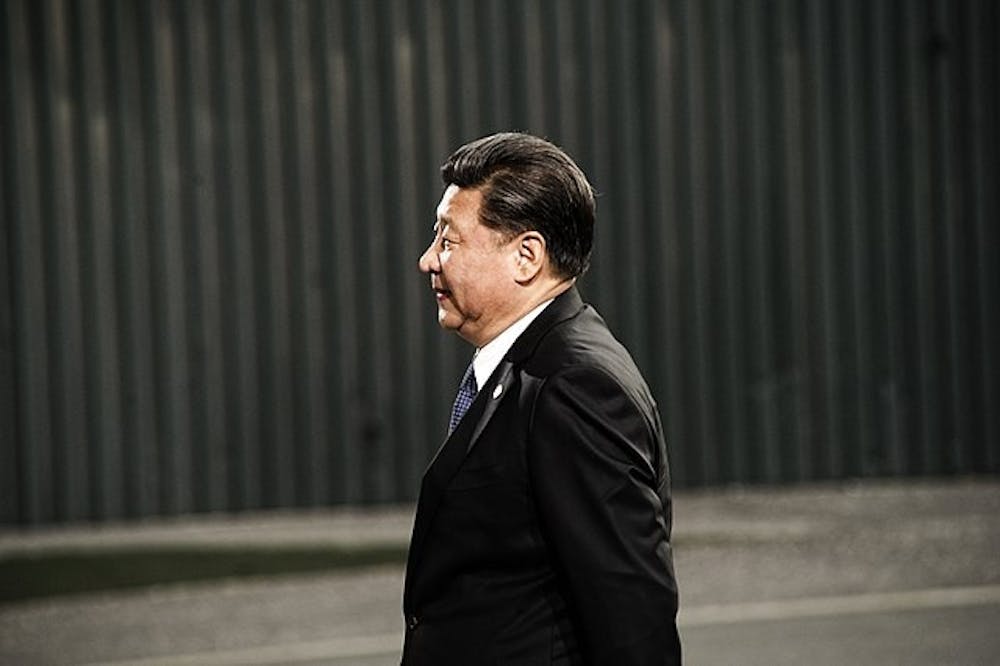Static overtakes the channel as the pilots adjust their frequency, “Foreign military airplanes, you are approaching my military secure area, please go away quickly in order to avoid wrong judgment.”
Silence prevails for a brief moment with a mix of callsigns and designations being spewed over the radio. Finally, a pilot responds, “Station calling U.S. military aircraft please identify yourself. I am a United States military aircraft conducting lawful military activities outside national airspace. I am operating with due regard as required under international law.”
The static continues, and the Chinese officer continues to recite his callsigns and designation before providing a manufactured and tactical reply: “This is Chinese Navy. This is Chinese Navy. This is Chinese sky. Foreign military airplane, you are approaching my military secure area please go away quickly in order to avoid wrong judgment.”
While the eight minute audio log is over seven years old, the documented interaction between the crew of a U.S. Navy P-8A Poseidon and the captain of a Chinese Naval vessel echoes an everlasting geopolitical struggle between the two nations in the waters surrounding China.
The Taiwan Strait in the South China Sea has been at the epicenter of this “passive” conflict, with near midair collisions, flybys and freedom of navigation operations accentuating the collective tension.
In August, China restated its willingness to annex Taiwan by force and halted discourse with the U.S. in response to Speaker of the House Nancy Pelosi’s visit to the island nation. This moment, while being considered the relative climax of the conflict, is demonstrative of China’s lack of commitment to the conflict — and enforcing its rule of law in what it believes to be its sovereign territory.
Although, China will not invade Taiwan. It lacks both the will or means to do so.
Speaker Pelosi's visit to Taiwan made her the highest-ranking American official to visit the island in 25 years, representing an unspoken American acknowledgement of Taiwan’s soverignty. While China lays claim to the island and deems it to be included in its territory, they took no decisive action to counteract U.S. diplomatic encroachment.
In the following weeks U.S. warships continued to conduct freedom of navigation operations through the Taiwan strait with no contest. China continues to assert its claim to the South China sea despite a 2016 ruling by an Arbitral Tribunal that rejected China’s “expansive” claims as having no precedent in international law. The ruling was binding and final, and has never been accepted by the Chinese government.
In the context of this ruling, and the lack of definitive action by the Chinese government to enforce its supposed sovereign territory, there is no evidence to indicate China is committed to a kinetic operation to overtake the island.
Could Taiwan be the next Hong Kong?
One might point to China's establishment of Hong Kong as a special administrative region (SAR) of China as an example of their goals for Taiwan, where political violence plagued the SAR. From an outside view, Xi Jinping and his government seem ready to utilize these same measures. However, the police on the ground attacking protestors was a successful show of strength which is not possible in Taiwan without a Chinese invasion.
Yet, several factors permitted China to overtake Hong Kong in a relatively painless sweep.
Hong Kong was contractually linked to China in lieu of Great Britain's dissolution of it as a colony. China only needed to wait 50 years after the 1984 Sino-British joint declaration to integrate Hong Kong back into the central government. While China did encroach on this directive by taking over Hong Kong earlier than agreed upon, this could be considered an inevitability in the wake of its expansion as an economic power seeking to stake its claim to its entire land mass.
Furthermore, the lack of a clear geographical boundary between China and Hong Kong, aside from the Sham Chun river, allows an extensive projection of force for China to overtake it. This single geographic difference may be the key to why China has taken Hong Kong but will never take Taiwan.
The separation between the two countries would require an amphibious operation which China has no experience in executing. However, the mobilization of resources and the sustained effort required to take Taiwan by force would strain China’s People's Liberation Army (PLA) into a fight they are not prepared to win.
The PLA as a whole maintains a spotty track record in many of its foreign endeavors. The PLA’s support base in Djibouti represents China’s premier force projection abroad. While the base plays into the country's economic and political agenda in Africa, they lack any definitive control in the region.
Given this evidence, it would be reckless of the international community to assume China is in any position to execute a kinetic operation to truly establish its claims to the South China Sea and Taiwan.
China is not a genuinely aggressive actor looking to envelope the region by force. Instead, it's a rising power seeking to reinforce its prestige and establish itself as an unyielding actor that will not bend to the pressures of the West.
Edward Habboosh is a freshman staff writer studying History. Do you believe the tensions between China and Taiwan will result in an invasion? Send all comments to opinion@dailycardinal.com.





